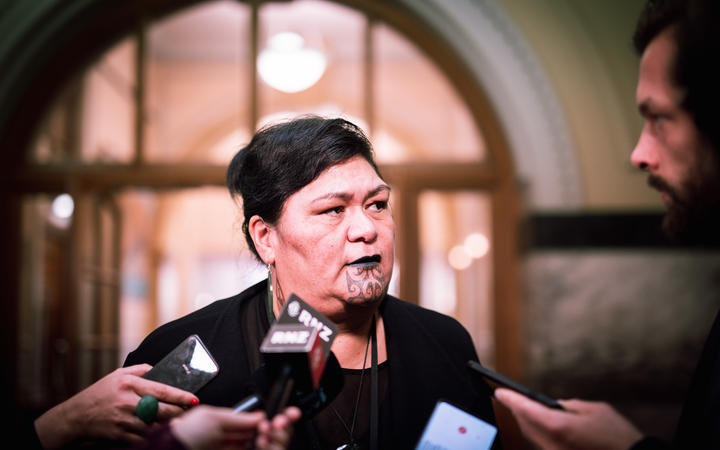A Bill giving local councils the power to write off rates arrears, make unused Māori land unrateable, and allow for multiple homes on Māori land is just a start to a wider conversation about Māori land, a Ruapehu District Councillor says.

Minister for Local Government Nanaia Mahuta says Whenua Māori Rating Amendment Bill is part of a wider set of initiatives the government is working through that aim to support Māori landowners (file image). Photo: Wikimedia Commons
The Whenua Māori Rating Amendment Bill passed its third reading yesterday, modernising Māori land rating laws that have been largely untouched since 1924.
The Bill gives better recognition to communal ownership of whenua Māori, and situations where multiple houses are on one land block. It also makes unused Māori land unrateable, including land under Ngā Whenua Rāhui covenants.
Ruapehu District Councillor Elijah Pue said the changes made it easier for whānau to use, develop and live on their tūpuna whenua.
“I think it goes a long way toward giving Māori landowners the tools they need to manage and own Māori land and multiple houses on different parcels of Māori land.
“I would also say that it’s a start to a really important conversation that needs to happen around the management of Māori land into the future. The review of the Te Ture Whenua Māori Act is really necessary in addition to the review of the Resource Management Act which is due to happen this year.”
Minister for Local Government Nanaia Mahuta said nearly 100 years of a system that was not fit for Māori had resulted in underdevelopment of Māori land and disadvantage for Māori living on Māori land. It had also resulted in a level of rates arrears which unfairly represented the level of unpaid rates on Māori-owned land, she said.

Nanaia Mahuta. Photo: RNZ / Samuel Rillstone
“Provisions have also been introduced to better recognise the communal ownership of Māori land, and situations where multiple houses are situated on one block of Māori land,” Mahuta said.
“These circumstances were ignored when the rates rebate scheme was introduced in the 1970s and it is time to correct a wrong that has disadvantaged low-income homeowners on Māori land for generations.”
The Bill is part of a wider set of initiatives the government is working through that aims to provide Māori landowners with tools to help them reach their aspirations and the full potential of their land, Mahuta said.
The Bill would also be beneficial for local authorities, allowing councils to work more easily with Māori landowners. Mahuta was pleased that no local authorities spoke against the Bill.
“Removing the obstacles so Māori and local authorities can develop strong relationships will be an invaluable contribution to future generations.
“Central government is on a long journey to improve Māori-Crown relations, and there is a place for local authorities alongside us on this journey.”
The Bill amends the Local Government (Rating) Act 2002 to:
- Provide local authorities with the power to write off rates arrears and a statutory remission process for development
- Make unused Māori land, including land subject to Ngā Whenua Rāhui kawenata, unrateable
- Provide the option for separate rate accounts for multiple homes on Māori land (giving home owners access to the rates rebate scheme)
- Provide the opportunity for local authorities to treat multiple blocks of Māori land as one block for rating purposes, provided they come from the same original block
- Modernise the rating system affecting Māori land, including protecting Māori land arbitrarily reclassified as general land in the late 1960s and early 1970s from ‘abandoned land sales’, clarifying land trustees’ obligations in respect of rates, and updating and clarifying the exemptions that apply to marae and urupā
The new provisions around land that becomes non-rateable, treating individual blocks as one and creating individual rates accounts for homes, will come into force on 1 July 2021. This will allow local authorities the time to research and put in place the necessary systems so that the correct rating treatment can be applied.
The Bill also amends the Local Government Act 2002 to require certain local authority funding and financing policies to support the principles set out in the Preamble to Te Ture Whenua Māori Act 1993.
Local authorities’ policy on the remission and postponement of rates on Māori freehold land must comply with the Bill by 1 July 2022, but the changes required for the other policies can be required as part of the normal planning and review cycles.
All other substantive provisions will come into force the day after Royal Assent.

Local Democracy Reporting is a public interest news service supported by RNZ, the News Publishers’ Association and NZ On Air.